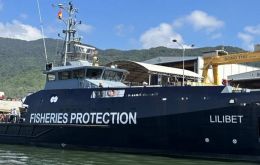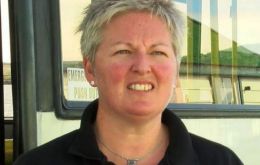MercoPress. South Atlantic News Agency
Tag: finfish
-
Saturday, March 11th 2023 - 23:48 UTC
2022 Was a Boom Year For Falklands Squid and Finfish Fleets

Fisheries authorities in the Falkland Islands have said that 2022 was a bumper year for the squid and hake fishing fleets licenced by the territory. Sixteen ships caught a remarkable 101,166 tonnes of loligo squid; a catch that was exceeded only in 1989 when 118,120 tonnes were landed, although that record catch was achieved by almost three times as many ships.
-
Monday, June 14th 2021 - 01:19 UTC
Lack of regional cooperation on fisheries could have ‘disastrous outcomes’ on Falklands finfish fishery

An independent study of the Falkland Islands finfish fishery has found that lack of international cooperation over fish stocks straddling international boundaries to be one of ‘the most constraining factors to sustainable ecological and economic management of the [Falklands’] finfish fishery,’ adding that ‘it is also likely to have disastrous outcomes; a prediction supported by the current status of many, although not all, of the finfish stocks.’
-
Friday, May 1st 2020 - 07:32 UTC
Falklands' first Loligo season ends; vessels off to Vigo, and back by end of July for second season

The Falkland Islands government, FIG, announced that the first loligo season has come to a close as of 28 April, and on Thursday a number of vessels arrived in Stanley Harbor and Port William.
-
Friday, April 24th 2020 - 08:45 UTC
Falklands faces fishing markets paralyzed on COVID-19 impact

The impact of COVID-19 on the seafood market and industry operations has been severe, confirmed fishing industry executives and a spokesperson for the Falkland Islands Fishing Companies Association (FIFCA).
-
Friday, August 17th 2012 - 06:38 UTC
Falklands working on finfish and loligo fishing gear to reduce by-catch

The Falkland Islands Fisheries Department scientists are currently investigating whether changes in fishing gear used in the finfish and loligo fleets can reduce by-catch, Fisheries Scientist Alexander Arkhipkin told Penguin News.
